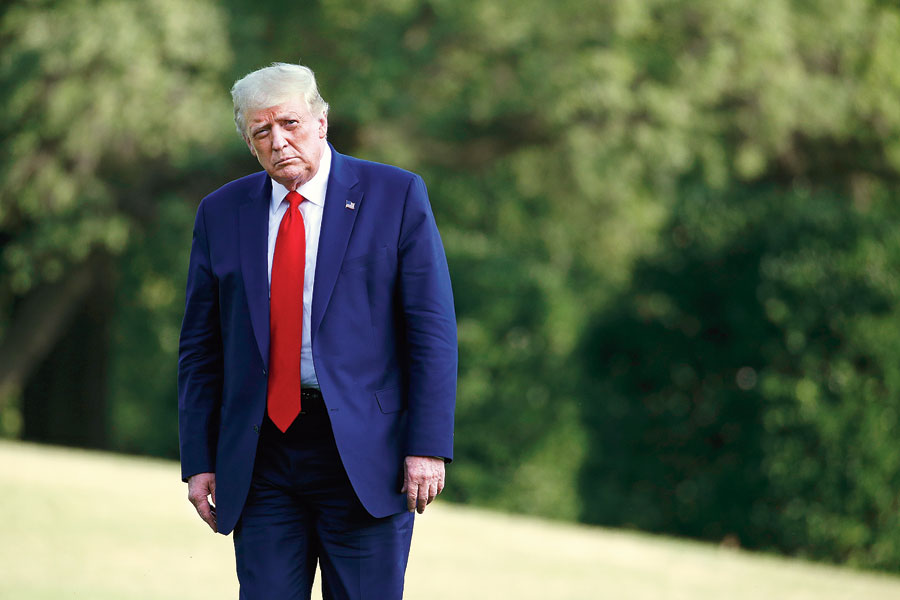July 4 is Independence Day for the United States of America, celebrated every year with fireworks, booze and cookouts. This year marked the US’s 245th birthday. But amid the need for social distancing and the closure of bars, one would think that this weekend was like any other.
According to the Transportation Security Administration, the number of passengers passing through TSA checkpoints over that weekend was down by 75 per cent in comparison to last year. However, according to WingX, which keeps data on the aviation industry, private jet flights in the US increased by 5 per cent. According to research by the light jet operator, Globe Air, there are 700 touch points exposing passengers to the risk of contagion on a single commercial flight compared to less than 20 interactions when using business aviation such as private jets.
While people are not flying, it seems they are still getting infected. A new analysis of cell phone data suggests that even more people hit the road among the country’s top 10 coronavirus hotspots. Cuebiq — one of the private companies that the Centers for Disease Control and Prevention uses to track general movement in the US — gets its data when people download apps on their phones and opt into anonymous location data tracking. The company’s full data set includes 15 million phones nationwide.
Local political leaders cancelled fireworks for fear of the virus spreading. Beaches and parks in Miami and South Carolina were also closed. According to analysis from Cuebiq, Orlando saw the largest increase in visitors in comparison to the weeks leading up to the holiday weekend, and Charleston saw the highest percentage of visitors among the 10 metro areas. In both areas, roughly one in five devices was determined to be a visitor.

President Donald Trump in Washington on July 15 AP
Low blow
As the US government grappled with the pandemic, it came out with an order to deport international students. The directive, which has since been rescinded, was misguided and impractical. It said that students on an F1 visa enrolled in colleges that had decided to conduct all classes online for the fall semester would no longer be allowed to remain in the US. Harvard University and the Massachusetts Institute of Technology sued the Donald Trump-led administration, and several other American universities, including Cornell, Princeton and the University of Pennsylvania, joined the litigation. Many universities have already announced that even though they will be allowing a certain percentage of students back on campus, classes will be conducted online because of social distancing norms.
A number of universities sent out messages to their students, calling out the now-withdrawn order unfair and cruel. After the case went to court, Trump tweeted that he was ordering the treasury department to re-examine the tax-exempt status and funding of universities. On July 14, the government rescinded the restriction.
Trump has been pushing for the opening of schools and universities for this fall season. He went as far as to threaten to withhold federal funding if they do not comply. The move to use international students as pawns could have been a way to mount pressure on universities to open up. According to CNN, there are a million international students in the US; from a business standpoint, they bring in a much higher revenue for US universities than domestic students.
Home troubles
The coronavirus has upended the housing situation in the US, leaving many unable to pay rent. According to an online rental website, 30 per cent of Americans were unable to make their June rental payment. At the beginning of the pandemic, most governments had issued protections against the eviction of tenants who are unable to pay, but most of these are set to expire in July. According to the Apartment List, 37 per cent of renters and 26 per cent of homeowners are worried that they will face eviction or foreclosure in the next six months. Columbia University researchers estimate that homelessness could increase by 40-45 per cent this year over the numbers in January 2019 — which is about 8,00,000 more Americans.
There is a cascading effect — tenants are unable to make payments, and owners still need to collect the cash to keep up with their own expenses. Currently, as people are hesitant to move, newly constructed units are being sold at higher asking rates than usual. Eventually, the eviction moratorium will expire and people will be forced to leave. This will create an excess supply of available units, thus driving prices down.
Jolted awake
In the wake of the Black Lives Matter movement, many large corporations have come under the spotlight for their brands and logos that are rooted in racism-fuelled history. Companies were quick to propose plans to change mascots and logos, with some executing a complete overhaul of their brands. The food brands, Aunt Jemima and Cream of Wheat, have actually been criticized for several years for their racist mascots. The National Football League team, the Washington Redskins, also said it will retire its name and logo after completing an internal review. Its representative, heading the change campaign, stated that “future generations of Native youth will no longer be subjected to this offensive and harmful slur every Sunday during football season”. The quick rice brand, Uncle Ben’s will also change its name, which is linked to the practice of white Southerners calling older black people ‘aunt’ and ‘uncle’ because they refused to use ‘Mr’ or ‘Mrs’.
Footnote
Even as Florida leads the US with its daily spurt of coronavirus cases, Disneyworld took the bold step of reopening its doors to the public. Visitors must wear masks, gloves and maintain social distancing. Yet, this goes to show that throngs of people would still prefer to ride a roller coaster over protecting themselves and others. During the four months of closure, Disney lost an average of $38 million a day on admissions, hotels, parking, merchandise and food.











